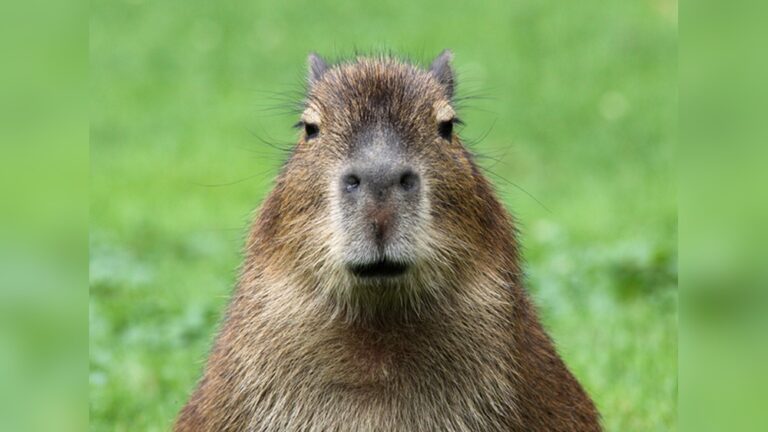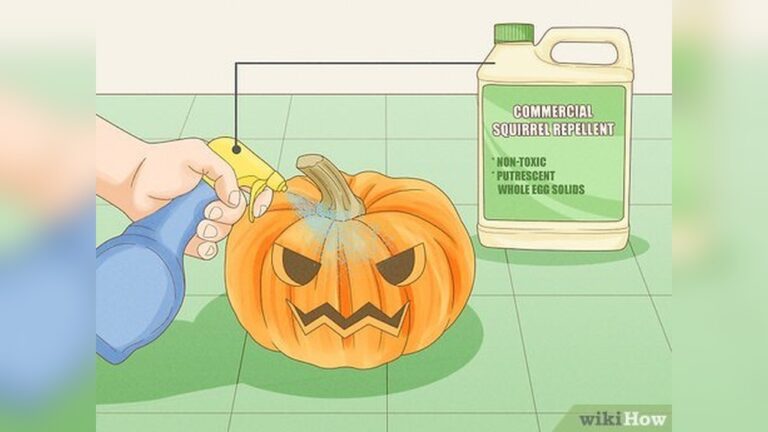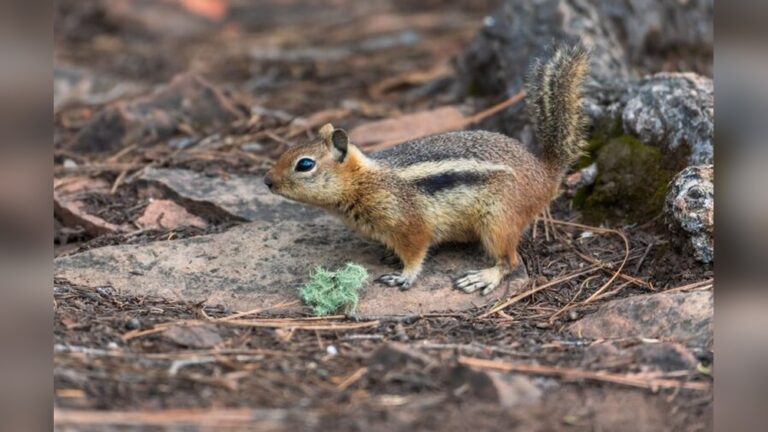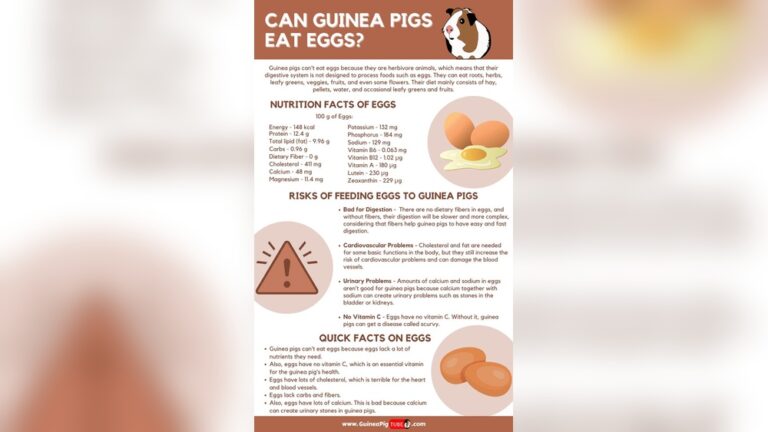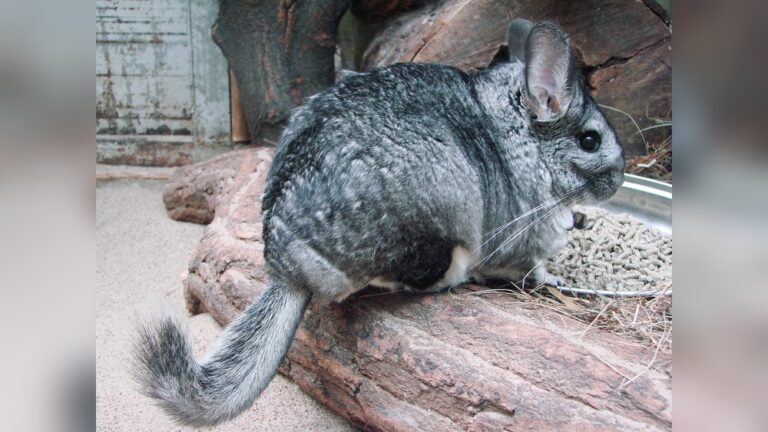Are Chipmunks Destructive? Shocking Truths Revealed
Have you ever noticed tiny holes in your garden or chewed-up plants and wondered if chipmunks are to blame? These small, cute creatures might seem harmless, but could they be causing more damage than you realize?
If you’re worried about your outdoor space or even your home, it’s important to understand just how destructive chipmunks can be. Keep reading to discover what chipmunks really do, why they might be a problem for you, and what you can do to protect your property before the damage gets worse.

Credit: wildlifehotline.info
Chipmunk Behavior Patterns
Chipmunks are small rodents known for their busy and active lives. They follow specific behavior patterns that help them survive. Understanding these habits helps us see if they cause harm or just live naturally.
These patterns include their daily routines, where they build homes, and how they collect food. Each habit shows how chipmunks adapt to their environment and protect themselves.
Daily Activities
Chipmunks are mostly active during the day. They spend time running, climbing, and exploring. Their small size lets them hide quickly from predators. They rest in short bursts to save energy. These animals move fast and stay alert.
Nesting Habits
Chipmunks build nests underground or in tree cavities. They use leaves, grass, and small twigs for bedding. These nests keep them safe from cold and danger. Each chipmunk has its own nest. They return to the same spot often.
Food Gathering
Chipmunks gather seeds, nuts, fruits, and insects. They store extra food in cheek pouches to carry back home. Their food storage prepares them for winter. They hide food in small underground chambers. This habit helps them survive harsh seasons.
Common Damage Caused By Chipmunks
Chipmunks may seem cute but they can cause real damage. Their habits affect gardens, homes, and local animals. Understanding the common damage helps in managing their presence safely.
Garden And Plant Damage
Chipmunks dig up bulbs and roots for food. They eat seeds, young plants, and fruits. This digging can ruin garden beds and lawns. Plants may die or stop growing well. They also carry seeds that spread unwanted weeds.
Structural Issues
Chipmunks create burrows near building foundations. These tunnels can weaken soil and cause cracks. They chew on wires and wood around homes. This chewing can lead to costly repairs. Burrows near patios or driveways cause uneven surfaces.
Impact On Other Wildlife
Chipmunks compete with birds and small animals for food. Their burrows may disturb nests of other animals. They spread parasites like ticks, which harm other wildlife. This disruption can reduce local animal populations. Chipmunks affect the balance of nature in small areas.
Why Chipmunks Cause Damage
Chipmunks are small animals, but they can cause big problems. Their behavior often leads to damage in gardens, homes, and yards. Understanding why chipmunks cause damage helps us find better ways to manage them.
Chipmunks act in ways that come naturally to them. Their needs and habits sometimes clash with human spaces. This clash causes many issues that people notice.
Natural Instincts
Chipmunks dig tunnels and burrows to live and store food. This digging can harm garden plants and lawn roots. They also gather nuts and seeds, often from bird feeders or crops. Their instinct to collect food makes them chew on various materials. This chewing can damage wood, wires, and plastic.
Seasonal Changes
Chipmunks prepare for winter by storing food in their burrows. This need makes them active in fall, digging more and taking more food. They may enter homes or sheds looking for warm places. During spring and summer, chipmunks search for food to feed their young. Their activity increases the chance of damage during these seasons.
Habitat Encroachment
Humans build houses and roads where chipmunks live. This reduces their natural space and food sources. Chipmunks move closer to human areas to survive. They dig in yards and gardens and take food from bird feeders. Habitat loss forces chipmunks into places where they cause more damage.
Signs Of Chipmunk Presence
Chipmunks are small animals that can cause damage around homes and gardens. Knowing the signs of chipmunk presence helps catch problems early. Their tracks, burrows, and other clues show where they live and feed.
Tracks And Burrows
Chipmunk tracks are small and often found near burrows. Burrows look like small holes in the ground, usually near trees or bushes. These tunnels serve as homes and storage for food. Look for fresh soil around the entrance.
Chewed Plants And Objects
Chipmunks chew on plants, fruits, and even wooden objects. You may see leaves or stems with bite marks. Garden vegetables can disappear quickly. Signs of gnawing on fences or furniture are common too.
Noises And Sightings
Chipmunks make high-pitched chirps and rustling sounds. You might hear these noises during the day. Spotting a small, striped animal running or climbing is another clear sign. They are fast and often hide quickly.
Safe Ways To Prevent Damage
Chipmunks can cause damage by chewing on plants and digging in gardens. Preventing this damage is possible without harming the animals. Safe methods protect your space and keep chipmunks safe too. These simple steps help stop damage while respecting nature.
Use natural ways first. They are easy, cheap, and kind to the environment. Combine methods for the best results.
Natural Deterrents
Chipmunks dislike certain smells and tastes. Sprinkle cayenne pepper, garlic powder, or coffee grounds around plants. These scents keep chipmunks away without poison. Plant strong-smelling herbs like mint or rosemary near your garden. Their smell acts as a natural barrier. Use safe sprays made from hot peppers for extra protection.
Physical Barriers
Build fences or use wire mesh to block chipmunks. Place mesh around garden beds and under plants. Make sure the mesh is buried a few inches deep. This stops chipmunks from digging underneath. Use netting over fruit trees to protect the fruit. Cover holes and gaps in your home’s foundation to keep chipmunks out.
Habitat Modification
Chipmunks like places with food and shelter. Remove piles of wood, rocks, and dense bushes near your home. Keep grass short and clean up fallen fruits or seeds. This reduces places for chipmunks to hide or nest. Store pet food and birdseed in tight containers. Less food means chipmunks are less likely to stay.
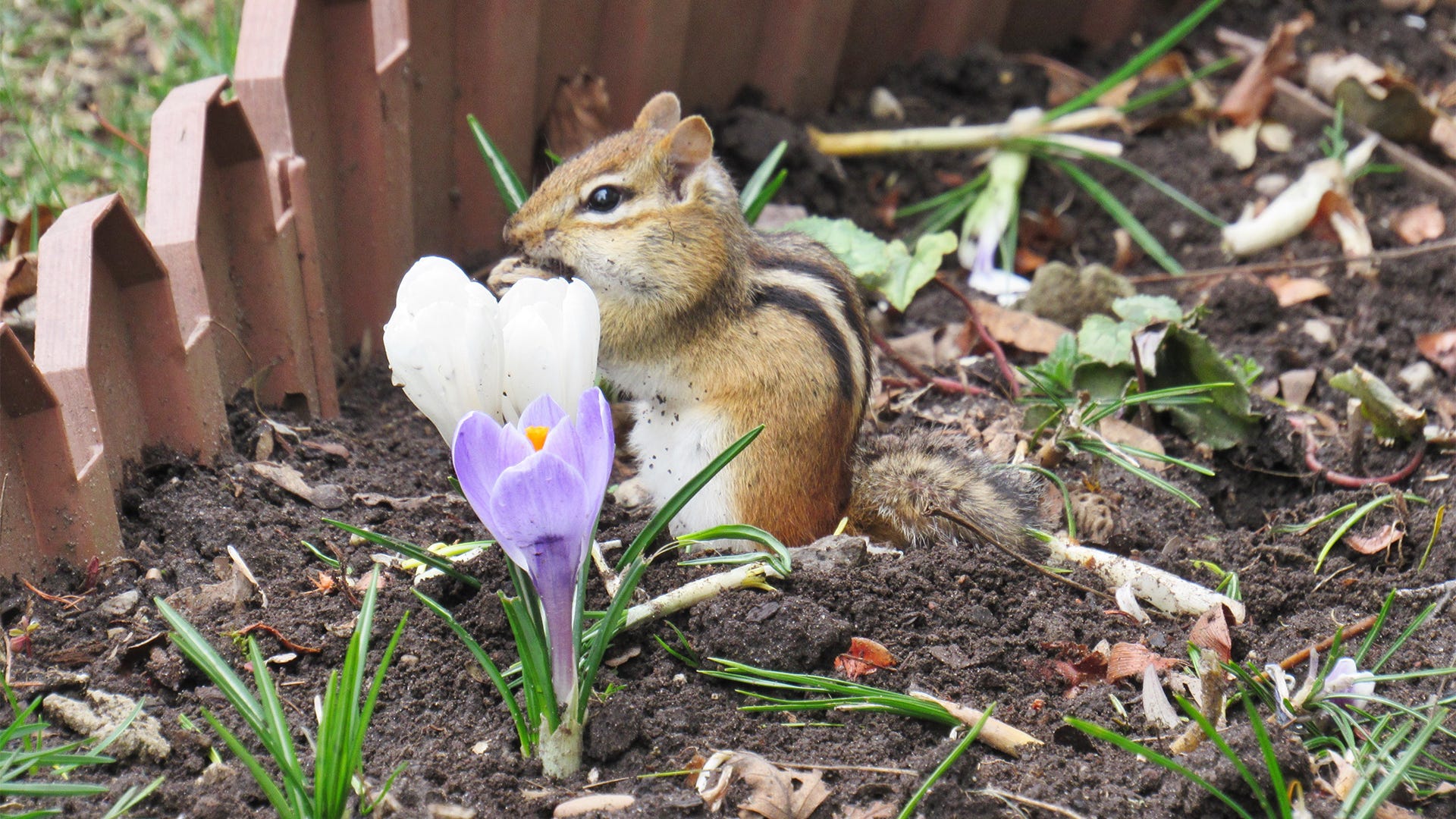
Credit: www.havahart.com
When To Seek Professional Help
Chipmunks can cause problems that need more than simple fixes. Knowing when to get expert help can save your home and health. Some signs show the problem is too big for you to handle alone.
Severe Infestations
Lots of chipmunks in your yard or house means a severe infestation. They can chew on wires, wood, and insulation. This damage gets worse fast. Experts have tools and skills to remove them safely. They also stop chipmunks from coming back.
Health Risks
Chipmunks carry fleas and ticks that spread diseases. Their droppings can harm your family’s health. These risks grow when chipmunks live inside your home. Professionals know how to clean and protect your space. They reduce the chance of sickness.
Legal Considerations
Some places protect chipmunks by law. Removing them without permission can cause fines. Wildlife experts understand local rules and follow them. They use legal and safe methods to handle chipmunks. This keeps you safe from legal trouble.

Credit: www.goerie.com
How Smart Pets Lover Can Help You with Are Chipmunks Destructive
Learning from Chipmunks: Turning Curiosity into Care
Understanding whether chipmunks are destructive opens up meaningful opportunities to learn about wildlife behavior and responsible coexistence. By recognizing chipmunk behavior patterns and the common damage caused by chipmunks, we can better appreciate why these little creatures sometimes dig into gardens or nibble on structures—not out of malice, but instinct and survival needs.
This knowledge encourages practical, safe prevention methods that protect both our homes and the chipmunks themselves. Observing the signs of chipmunk presence can also be a wonderful way for families, especially kids, to connect with nature, fostering empathy and curiosity about local wildlife.
- Keep a journal of chipmunk activity to understand their routines.
- Experiment with natural deterrents to see what works best in your garden.
- Engage with local wildlife experts or community groups to share experiences.
At Smart Pets Lover, we believe every interaction with animals tells a story—one that can deepen our bond with the natural world. If you ever feel overwhelmed by chipmunk issues, reaching out to local animal control or wildlife specialists can provide tailored advice to ensure harmony for all. Remember, every little paw print in your yard is an invitation to learn and grow alongside nature’s charmers.
Frequently Asked Questions
Are Chipmunks Harmful To Gardens And Plants?
Chipmunks can damage gardens by digging and eating seeds or young plants. They often raid vegetable patches and flower beds, causing noticeable harm. However, their impact varies by location and garden size.
Do Chipmunks Cause Structural Damage To Homes?
Chipmunks rarely cause serious structural damage to homes. They may dig around foundations or enter attics but do not chew through wood or wiring like some rodents.
How Do Chipmunks Affect Outdoor Property?
Chipmunks dig burrows that can disrupt lawns and flower beds. Their tunnels may cause soil erosion, but this damage is usually minor and manageable with proper landscaping.
Can Chipmunks Spread Diseases To Humans Or Pets?
Chipmunks can carry fleas and ticks that transmit diseases. However, direct disease transmission to humans or pets is rare if contact is minimal.
Conclusion
Chipmunks can cause damage to gardens and homes. They dig holes and chew on plants or wires. This behavior may lead to problems for property owners. Yet, chipmunks also play a role in nature by spreading seeds. Controlling their activity helps protect your space without harming them.
Small steps can reduce chipmunk damage effectively. Understanding their habits makes managing them easier. Stay aware and act early to keep chipmunks in check.

